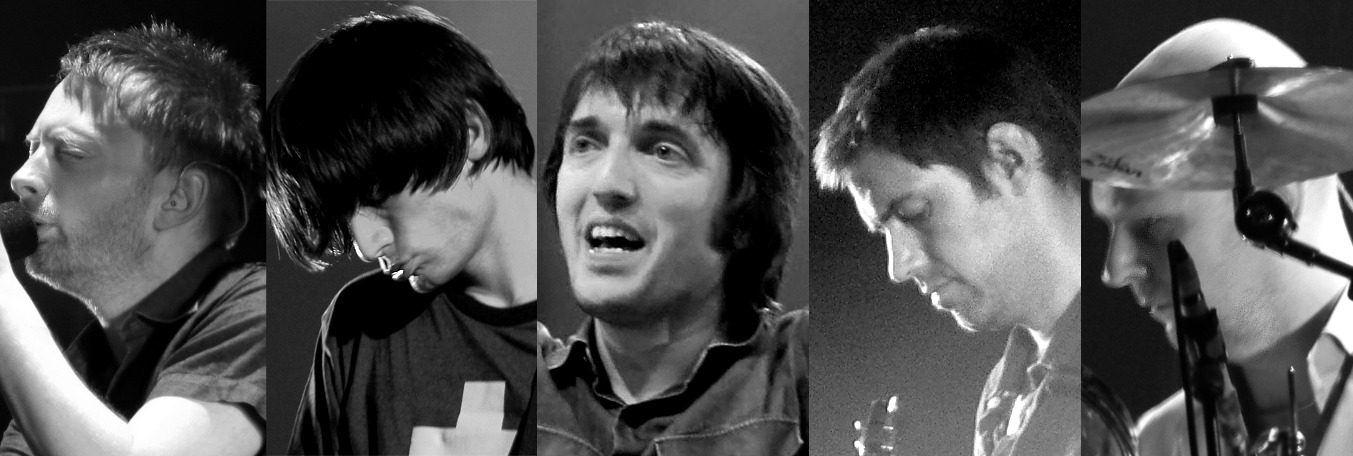When alternative rock’s potential was realised: OK Computer at 25
If The Bends was when Radiohead got a foothold on the casual music listener, then its follow-up OK Computer was when they took said listener, shook them by showing how great popular music can be, and left them in delirious revelation. This LP revealed to the world the band’s untold talent and distinguished them as a stupendous force in the alternative rock scene.
By 1997, Britpop and Grunge as major subgenres of alternative rock were running out of gas, with the bands who spearheaded them either disbanded (Nirvana, Soundgarden), declining (Oasis, Suede), or changing course entirely (Blur, Smashing Pumpkins). Lead songwriter and frontman Thom Yorke was growing disconnected and alienated by the band’s intensive touring schedule and the rapidly changing, technological world on the horizon. In steps Radiohead’s third studio effort: an LP whose core is rife with dread, angst, and estrangement, with a character that’s distinctly modern and futuristic. This was when alternative rock’s potential was realised. This was when Radiohead truly arrived.
All the songs have an air of grandiosity as if the songs have a life of their own
The influences that inform the album are impressively recontextualised. Admittedly, tracing the influences throughout Radiohead’s discography is not easy: the band is like the Emily Dickinson of alternative rock, and their voice is profoundly original. On tracks like the otherworldly ‘Subterranean Homesick Alien’, there are traces of the textured soundscapes found on Miles Davis’ Bitches Brew (1970). On singles like the downbeat ‘Karma Police’, the piano riff is cleverly extrapolated from The Beatles’ ‘Sexy Sadie’ off their White Album (1968), and, of course, the dreamy yet tragic ‘No Surprises’ has nods to Beach Boys circa Pet Sounds (1966), having shades of ‘Wouldn’t It Be Nice’ or ‘You Still Believe in Me’ in its instrumental and vocal melody. The album displays the band’s elegance and cultured artistry, and their desire to break new musical ground with respect to what’s come before them.
The production is flawless. All the songs have an air of grandiosity as if the songs have a life of their own (à la Pink Floyd). Radiohead’s decision to record the album at the grand, haunting venue of St. Catherine’s Court proved an inspiring decision. Upon reflection, no contemporary album had a sound as sophisticated, complete, or loaded as this one. Consequently, the songs’ futuristic sheen and sentiments concerning tech-induced isolation, confusion, and mundanity are sold so well. For instance, the opener ‘Airbag’ is a frosty-sounding track with its scaly guitar sound, sleigh bells, and clean DJ Shadow-inspired drum loops. Though a more optimistic cut about a life being saved by a piece of technology, the sound conveys a disturbing banality and indifference, as if the speaker survived just to continue his dissociative existence. The various overlays of Yorke’s vocals at the catharsis of ‘Let Down’ contribute to the song’s monumental feeling. It’s like a dam of genuine emotion is flooding out in response to waves of manufactured sentimentality induced by a world that commercialises it.
Lyrically Yorke comes into his own on this LP. They’re oddly poetic in their brevity, blunt vocabulary, and at times bald imagery. Take the straightforward, swashbuckling number ‘Electioneering’, which despite its criticism of demagoguery in politics the chorus (“when I go forwards/you go backwards/somewhere we will meet”) leaves much to infer. Tracks like ‘Lucky’ are lyrically sparse yet still feel epic, with its wonderful guitar motif and swelling instrumentation just before the outro. Undoubtedly Yorke’s virtuoso vocal performances are largely why the lyrics go over so well. It takes a certain kind of vocalist to make lyrics like “Idiot, slow down, slow down” on the closer ‘The Tourist’ believable.
The album stretches alternative rock to its extremes
‘Paranoid Android’, the lead single (and the band’s best song to date) epitomises the album. Rhythm guitarist Ed O’Brien says the band aimed to make a track that’s a “crossing of Queen’s ‘Bohemian Rhapsody’ and The Pixies”. They did so and then some. The multi-suite tour de force has crisp, textured grooves and fiery guitar lines, lyrics that embody a nervous breakdown (“off with his head, man/ off with his head, man”), and a breathtaking magnitude. This track successfully distills the LP’s character, themes, and concepts, and its status as the band’s breakthrough hit, reaching number three on the singles chart, is thoroughly deserved.
OK Computer debuted at number one and set the band on their way to being one of the most highly anticipated artists of their generation, and one of pop’s most cutting edge outfits in recent memory. Despite its instant success and popularity none of the songs are particularly pop, which is a testament to the album’s undeniable quality and resonance with the public. The album stretches alternative rock to its extremes: recontextualising the musical past, internalising the contemporary angst, and presenting a possible musical future. OK Computer personified is like a person who seems to have their life together yet is truly falling apart inside: an immensely pretty LP that’s essentially a universal cry for help in the face of an impending disconnected, technological society. It hasn’t aged one bit.

Comments